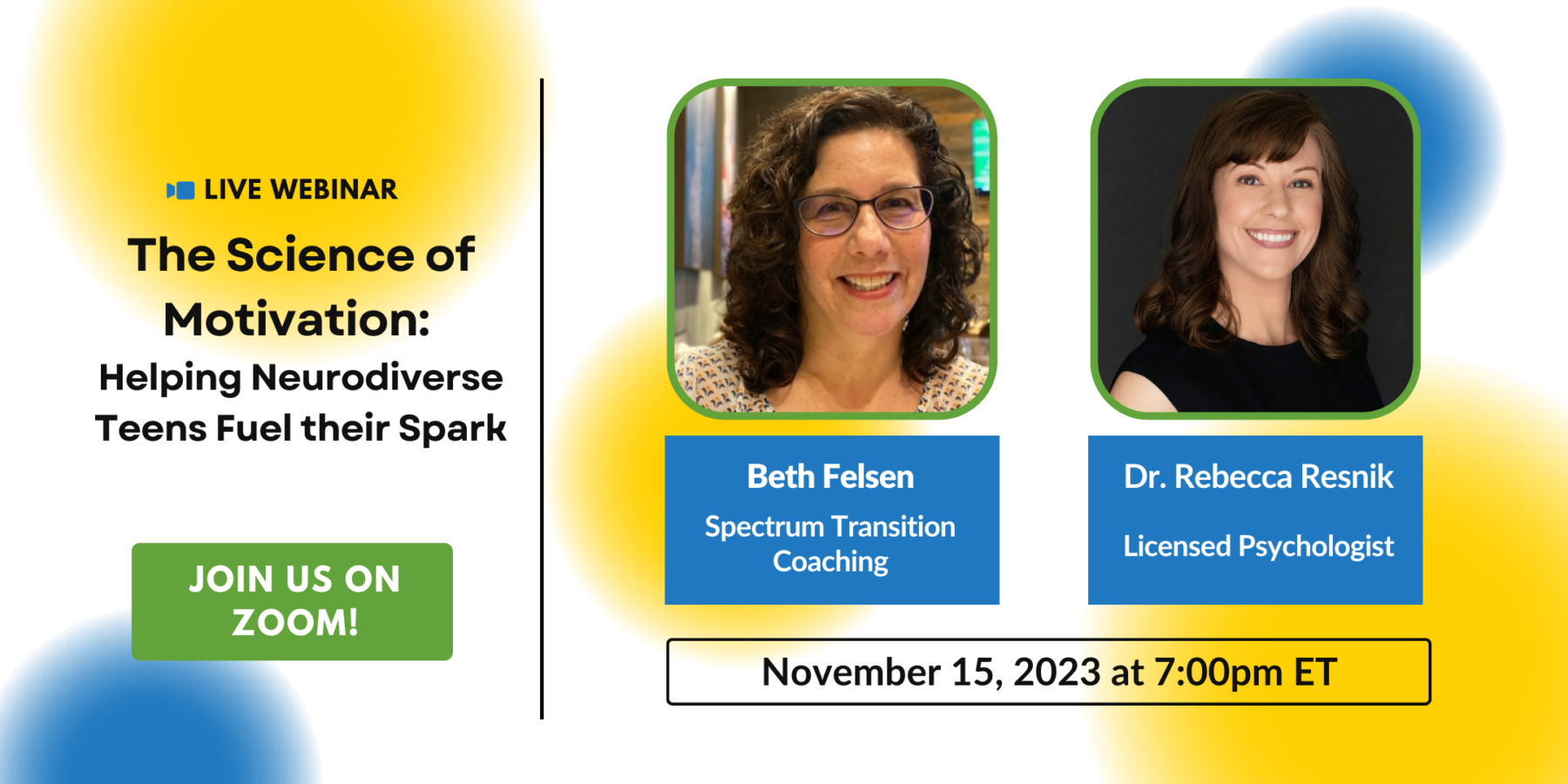“I just can’t motivate my student” is a common refrain from parents in my coaching practice.
They’ve tried everything and have yet to find a consistent method to build their autistic student’s motivation.
I know how frustrating that can feel. We want the best for our kids and we know these un-fun tasks along the way add up to meaningful progress. We worry that if our autistic loved ones can’t complete homework today, how will they be self-sufficient in the future.
But today we’re going to take a step back. Before we start thinking about how to motivate our kids, let’s think about our own relationship with motivation. Rather than jumping to manage our students, looking at our own motivation will lead to more useful and empathetic conversations among our family.
Even if you are solely focusing on your own motivation as an autistic young adult, you’ll get something out of this exercise too as we dive into the deeper meaning behind your checklist.
We’re just going to scratch the surface on motivation – there is so much science and research to guide our efforts that I’ve invited Dr. Rebecca Resnick to share her insights and practical advice. Hope you can join us in November.
Holiday Season Priorities
As I write this, it’s late October and the hectic fun of the holiday season is just around the corner. I am excited about spending time with friends and celebrating meaningful traditions. At the same time, I am daunted by the sheer amount of projects and tasks that stand between me and 2024.
To take a look at your own motivation, think about all of the upcoming items you get to do (or have to do).
Make Your List
The change of season and upcoming holidays leads to busy schdules. Your list may include:
Around the house projects
- Rake the leaves (x 100)
- Call a plumber for the leaky faucet
- Pull out holiday decorations
- Swap the air filters
- Wash the windows
- Spread mulch
- Winterize plants
- Get the guest room ready for company
Holiday season preparations
- Pull out the family recipes
- Make your shopping list
- Text family members to set holiday plans
- Book flights and travel arrangements
- Make gift lists
- Go shopping and wrap gifts
End of year school and work projects
- Support students with final exams
- Attend end of year conferences
- Complete year end review
- Submit expense reports
- Complete end of year charity donations
Circle your top and bottom items
Everyone’s list will look a bit different but take a few moments to study yours. What projects will you do first? Which will your push until the very last minute – or skip all together?
Now think a bit deeper about those items. What’s driving your decision to do certain things first?
Maybe you start with the outside of the house because you want your neighbors to think that you are an organized, together family. Are you motivated by pride or perception?
Maybe you start with the garden if that is your happy place. Are you driven by a desire for beauty?
Maybe you start with charity donations. Are you drive by purpose?
Or maybe you dread calling the plumber since you know that expense may affect your budget. Are you driven by fear?
Motivations aren’t good or bad. They vary by person and by situation.
What’s important is understanding that we all have unique motivations that help us get things done in our daily lives – or procrastinate until it becomes a problem.
Why this matters?
While there is no magic wand to set our motivations so we do the ‘right’ tasks first, there is scientific research behind how motivation works in our brains. This is especially important to understand the science behind motivation for our autistic loved ones so we can support them in ways that complement their brain chemistry.
I’m thrilled to host an in-depth talk with Dr. Rebecca Resnik on November 15 to dive into this topic. We’ll be covering:
- Factors that spark and nurture motivation for young people with autistic ‘systematizing’ brain styles
- How parents can help recognize barriers and obstacles that can extinguish their child’s ‘spark’
- Examples of specific language parents can use to advocate for their kids
Space is limited. Register here!


